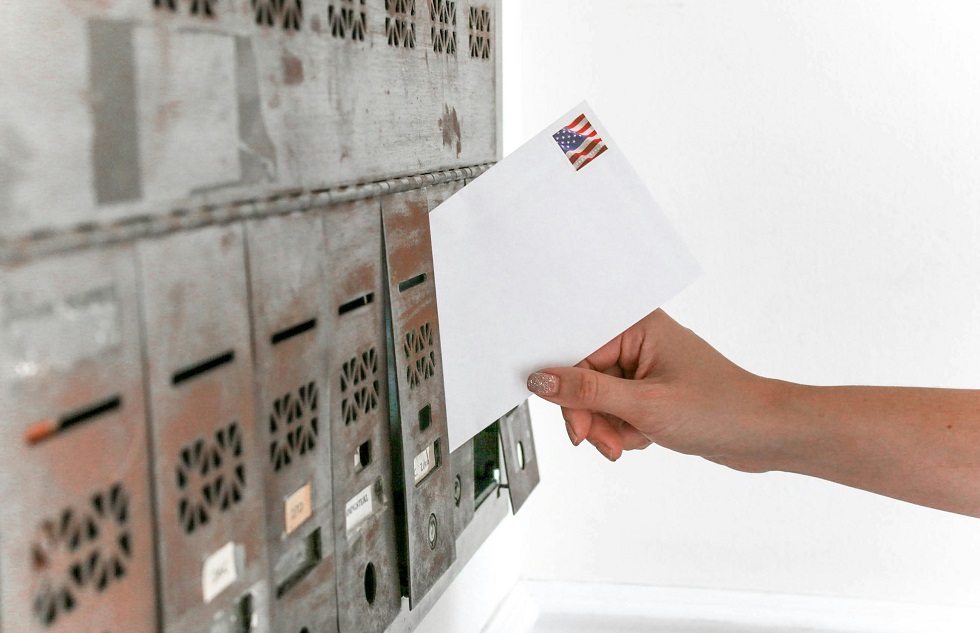When faced with an insurance company that denies a request for appraisal, policyholders can find themselves in a challenging position. Understanding the implications of such a denial is crucial for protecting our rights and maximizing our claims. The appraisal process is designed to resolve disputes over the amount of loss, and when insurers refuse to participate, it complicates the recovery process.
We often see insurers decline to enter the appraisal process due to disagreements over the scope of the loss or coverage details. This can lead to frustration and confusion for policyholders who may feel their claims are being unjustly delayed. Knowledge of legal options, such as seeking a court order to compel appraisal, equips us to take necessary action if faced with this situation.
Exploring the options available to us when an insurer denies appraisal is vital not only to navigate the complexities of property claims but also to ensure a fair resolution. We should be aware of our rights and the avenues we can pursue to enforce proper appraisal processes.
Understanding Insurance Appraisal
Purpose of Appraisal in Insurance Claims
The appraisal process is a method designed to settle disagreements between policyholders and insurance companies regarding the value of a loss. When we cannot agree on a claim payout, either party can invoke the appraisal clause present in most policies.
This process typically involves three parties: two appraisers and an umpire. Each side appoints an appraiser to evaluate the loss and present their findings. If the appraisers cannot reach an agreement, the umpire steps in to provide a binding decision. This approach aims to facilitate a fair resolution while avoiding lengthy litigation.
Procedure for Requesting Appraisal
Requesting an appraisal begins with a formal written demand, which outlines the need for evaluation based on the insurance policy terms. We must provide this demand to our insurance company, clearly stating the reasons for the request.
Next, both parties will select their appraisers and agree on an umpire. It is common for each side to bear the costs associated with their chosen appraiser, while shared costs of the umpire are split equally. Throughout the process, all relevant documentation should be prepared meticulously to support our position on the claimed loss, ensuring a thorough evaluation by the appraisers.
Reasons for Appraisal Denial
Lack of Coverage
One primary reason for an appraisal denial is insufficient coverage. Insurance policies often specify the types of damage covered. If the damage occurs outside these parameters, the insurer may refuse to honor the appraisal process. For instance, if the policy only covers specific perils, damages caused by excluded events like flooding might not qualify for an appraisal.
This situation highlights the importance of reviewing our policies thoroughly. Knowing what is covered can prevent surprises during claims. In the event of a denial, we should consider discussing the coverage details with our insurance agent to clarify any misconceptions.
Policy Exclusions
Policy exclusions can significantly impact our ability to initiate an appraisal. Insurers may argue that certain damages are excluded by the terms of the policy. For example, if a policy specifically excludes damages due to neglect or lack of maintenance, the insurer can reject an appraisal based on these grounds.
We must be vigilant about these exclusions when filing a claim. We should read our policy documents to identify any clauses that might limit our coverage. If confusion arises about the exclusions, consulting an insurance professional can provide clarity.
Late Notification
Timely notification of a claim is another critical factor. Most insurance policies require us to report damages promptly. If we fail to notify the insurer within the specified timeframe, they might deny the request for an appraisal.
It is essential that we adhere to notification protocols outlined in our policy. Delays can jeopardize our chances of support, no matter how legitimate our claim is. Maintaining a record of all communications related to our claims can also help if disputes arise regarding notification timelines.
Disputes Over Appraisal Scope
Disagreements regarding the extent of damages can lead to appraisal denials as well. If the insurer contends that the scope of loss is disputed or unclear, they may refuse to enter the appraisal process. For example, if there are inconsistencies in our damage assessments compared to the insurer’s evaluation, it can trigger this denial.
In such cases, seeking court intervention may be necessary to compel the appraisal. This process can clarify the extent of damage and ensure an objective evaluation. We should document all findings and assessments meticulously to support our position during any disputes.
Legal Recourse and Policyholder Options
Negotiation and Mediation
Negotiation is often the first step we can take after an appraisal denial. In this process, we meet with the insurer to discuss the reasons for the denial and attempt to reach a compromise.
Mediation can serve as a useful tool to facilitate this discussion. A neutral third party assists in guiding the conversation, helping both sides clarify their positions. This method can often resolve disputes without the need for legal proceedings, saving us time and money.
We’ll be sure to document all communication and agreements made during negotiations. This documentation may be beneficial if we need to pursue further action.
Arbitration as an Alternative
If negotiation fails, arbitration provides another alternative for resolving disputes. This process is more formal than mediation and usually involves a neutral arbitrator or panel who listens to both sides and makes a binding decision.
Arbitration can be faster and less expensive than litigation. It often follows specific rules laid out in the insurance policy.
Before entering arbitration, we should thoroughly review our policy to understand the terms and any obligations we should meet. We may also want to consult with legal professionals to ensure our case is well-prepared.
Filing a Lawsuit
If we exhaust negotiation and arbitration options, filing a lawsuit becomes a viable recourse. This step involves taking legal action against the insurance company in a court of law.
It’s essential to keep in mind the statute of limitations for filing claims in our jurisdiction. Legal proceedings can be time-consuming and costly, so we should be prepared for that commitment.
Engaging an attorney who specializes in insurance law can greatly benefit us in this process. They can help us navigate the complexities of litigation and work towards achieving a favorable outcome.
Mitigating Insurance Appraisal Disputes
Documentation and Record-Keeping
Accurate documentation is critical in avoiding disputes. We should maintain a thorough record of all communications with the insurance company, including emails, letters, and notes from phone calls.
Key documents to keep include:
- Insurance Policy: Keep a copy of the original policy to understand coverage.
- Damage Reports: Document any damage with photos and written descriptions.
- Repair Estimates: Compile estimates from contractors that outline the scope and cost of repairs.
Organizing this information helps us present a compelling case if a dispute arises. Proper record-keeping enables us to substantiate our claims and ensures that all necessary details are readily accessible.
Expert Appraisal Services
Engaging professional appraisers can be instrumental in mitigating disputes. We can benefit from hiring certified appraisers who have experience in our specific type of loss.
Their role includes:
- Independent Assessment: They provide an unbiased evaluation of the damage and loss.
- Expert Testimony: If disputes escalate, their insights can serve as valuable testimony in legal situations.
Working with experts enhances our credibility and strengthens our position. Moreover, their detailed assessments can help clarify any ambiguities regarding the extent of the damages and costs involved.
Preventative Measures
Taking proactive steps can help reduce potential disputes before they arise. We can implement measures such as:
- Regular Policy Reviews: Assessing and updating our coverage ensures it remains adequate for our property’s needs.
- Maintenance Records: Keeping a schedule of property maintenance can counteract claims of neglect or insufficient upkeep.
Educating ourselves about the appraisal process is also beneficial. Understanding our rights and responsibilities can empower us to navigate the insurance landscape more effectively. By being proactive, we minimize the likelihood of facing disputes in the first place.
Contact Landau Law: Florida Property Damage Lawyers
If you face an insurance appraisal denial, we understand the frustration and complexities involved. At Landau Law, our team specializes in property damage claims throughout Florida.
Our Expertise
- Experience: We have handled over $10 million in property damage claims, including residential and commercial cases.
- Knowledgeable Attorneys: Our lawyers are well-versed in Florida’s property insurance laws and the regulations governing appraisals.
Why Choose Us?
- Personalized Support: We offer a free initial consultation to discuss your situation and options.
- No Obligation: There’s no pressure; we want you to feel comfortable exploring your choices.
Steps to Take
- Contact Us: Call us at 866-703-4878 for immediate assistance.
- Review Your Case: We will evaluate your claim and provide guidance on the next steps.
- Develop a Strategy: Our lawyers will create a tailored plan to address your appraisal denial effectively.
Navigating the appeals process can be challenging. With our experience and dedication, we aim to level the playing field with insurers, ensuring your rights are protected. Let us help you pursue the maximum compensation you deserve. Contact us today!
Florida Property Damage Lawyers
Hurricane Damage Blog Posts

Why Does Florida Have So Many Hurricanes?
Florida is renowned for its beautiful beaches, vibrant culture, and, unfortunately, its frequent encounters with hurricanes. The state's unique geographical location and climate conditions make it particularly vulnerable to these powerful storms. Florida's position on...

What To Do If You’re Denied Hurricane Damage Claim For Home
Hurricane damage can be devastating for Florida homeowners, leaving them in a state of distress and financial uncertainty. When insurance claims for such damage are denied, it adds another layer of stress to an already difficult situation. Facing a denied claim...

Common Reasons Your Florida Hurricane Damage Insurance Claim May Be Denied
Florida homeowners face a daunting challenge when their hurricane damage insurance claims are denied. Understanding the common reasons for these denials can help you navigate the claims process more effectively. Insurance companies may deny claims due to inadequate...

Before and After a Storm Hits: What You Need To Know
Property Insurance laws have changed and so has the language in most policies. Make sure you’re prepared before the next storm hits. Understanding how the law changes will impact you and knowing what your policy actually covers (and doesn’t) is critical. That’s why...

What Does Hurricane Insurance Cover in Florida?
As Floridians, we understand the unique challenges that come with living in a hurricane-prone area. Hurricane insurance in Florida typically covers damage to our homes and personal property caused by hurricanes, including wind damage and, in some cases, flooding. It's...

How Long Does an Insurance Company Have to Settle a Hurricane Claim in Florida?
When it comes to hurricane damage in Florida, insurance claims are a common occurrence. However, many people are left wondering how long it takes for an insurance company to settle a hurricane claim. The answer to this question is not always straightforward, as it can...

How to File a Hurricane Insurance Claim in Florida
Filing an insurance claim after a hurricane can be a daunting task, especially if you're a Florida resident. With the increasing frequency of hurricanes in Florida, homeowners need to know how to file a hurricane insurance claim effectively. In this blog post, we will...

Renters Insurance For Florida Hurricane Coverage
Learn about the ways that renters insurance can help protect you after hurricane damage Renters insurance is a type of insurance policy that covers the personal property and liability of a renter. It can provide peace of mind in the event of a disaster, such as a...




